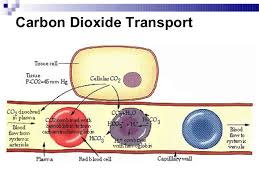Carbon dioxide (CO2) is an odorless, colorless gas. It is a waste product made by your body. Your blood carries carbon dioxide to your lungs. You breathe out carbon dioxide and breathe in oxygen all day, every day, without thinking about it. A CO2 blood test measures the amount of carbon dioxide in your blood. Too much or too little carbon dioxide in the blood can indicate a health problem.
Other names: carbon dioxide content, CO2 content, carbon dioxide blood test, bicarbonate blood test, bicarbonate test, total CO2; TCO2; carbon dioxide content; CO2 content; bicarb; HCO3



 Contact Us
Contact Us







 Hospitals
Hospitals
 Doctors
Doctors
 Diagnostic
Diagnostic
 Pharmacy
Pharmacy
 Health Tips
Health Tips
 Blog
Blog

























Comments